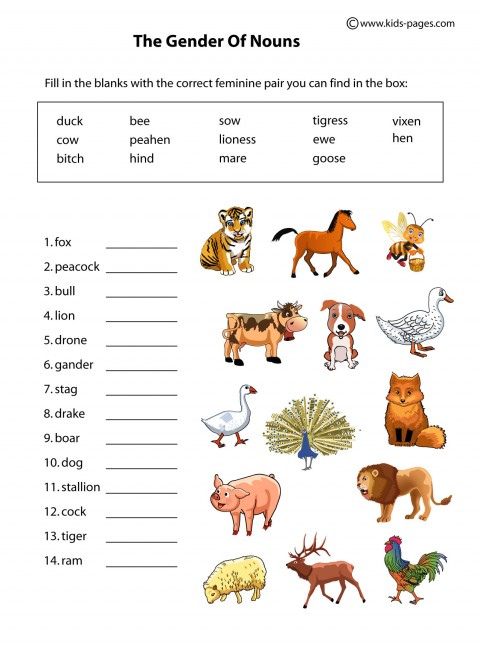CLASS 4
ENGLISH REVISION WORKSHEET (HALF YEARly-2019-2020)
I.Fill in the blanks with suitable homonyms
(pen,wound,present,play,bit,close,live,bat)
1. Let’s ___ soccer after school.
The author wrote a new ___.
2. Ouch! The mosquito ___ me!
I’ll have a little ___ of sugar in my tea.
3. My rabbits are in a ___ outside.
Please sign this form with a black ___.
4.All the students are ___ today.
The boss will ___ the award at 10:00.
5. Please ___ the door.
The boy sat ___ to his uncle.
6. The rope was ___ around his ankles.
The soldier received a ___ in the battle.
7. I don’t know if I will ___ or die.
Last night I saw the band play ___ in concert.
8. he loves to play with______.
______ are nocturnal animals.
II.Add the correct prefix
1. zip ______________________________ 2. honest __________________________
3. perfect ___________________________ 4. agree ___________________________
5. ripe ______________________________ 6. pleasant ________________________
7. stop ___________________________ 8. respect __________________________
9. fair _____________________________ 10. obey ___________________
11.happy ____________________ 12. reasonable _____________________
13.possible _________________ 14.necessary _______________________

IV COMPLETE THE FOLLOWING WITH PAST FORM OF VERB
1. I (eat)___________ dinner at six o’clock yesterday.
2. Helen (travel)___________ by bus.
3. My neighbor (buy)___________ a new car last week.
4. They (go)___________ to Italy on their last summer holiday.
5. They (swim)___________ at the beach.
6. My family and I (see)___________ a comedy movie last night.
7. First, we (do)___________ exercise, and then we (drink)___________ some water.
8. Suddenly, the animal jumped and (bite)___________ my hand.
9. What time (do)___________ you (get up)___________ this morning?
10. The Wright brothers (fly)___________ the first airplane in 1903.
Write the Past Simple form of the verbs.
1 take ..................... 2 give ..................... 3 go ..................... 4 drink .....................
5 think ..................... 6 practice ............... 7 ride ..................... 8 have .....................
9 buy .....................10 study...............11.wake................... 12.leave................
ENGLISH REVISION WORKSHEET (HALF YEARly-2019-2020)
I.Fill in the blanks with suitable homonyms
(pen,wound,present,play,bit,close,live,bat)
1. Let’s ___ soccer after school.
The author wrote a new ___.
2. Ouch! The mosquito ___ me!
I’ll have a little ___ of sugar in my tea.
3. My rabbits are in a ___ outside.
Please sign this form with a black ___.
4.All the students are ___ today.
The boss will ___ the award at 10:00.
5. Please ___ the door.
The boy sat ___ to his uncle.
6. The rope was ___ around his ankles.
The soldier received a ___ in the battle.
7. I don’t know if I will ___ or die.
Last night I saw the band play ___ in concert.
8. he loves to play with______.
______ are nocturnal animals.
II.Add the correct prefix
1. zip ______________________________ 2. honest __________________________
3. perfect ___________________________ 4. agree ___________________________
5. ripe ______________________________ 6. pleasant ________________________
7. stop ___________________________ 8. respect __________________________
9. fair _____________________________ 10. obey ___________________
11.happy ____________________ 12. reasonable _____________________
13.possible _________________ 14.necessary _______________________

IV COMPLETE THE FOLLOWING WITH PAST FORM OF VERB
1. I (eat)___________ dinner at six o’clock yesterday.
2. Helen (travel)___________ by bus.
3. My neighbor (buy)___________ a new car last week.
4. They (go)___________ to Italy on their last summer holiday.
5. They (swim)___________ at the beach.
6. My family and I (see)___________ a comedy movie last night.
7. First, we (do)___________ exercise, and then we (drink)___________ some water.
8. Suddenly, the animal jumped and (bite)___________ my hand.
9. What time (do)___________ you (get up)___________ this morning?
10. The Wright brothers (fly)___________ the first airplane in 1903.
Write the Past Simple form of the verbs.
1 take ..................... 2 give ..................... 3 go ..................... 4 drink .....................
5 think ..................... 6 practice ............... 7 ride ..................... 8 have .....................
9 buy .....................10 study...............11.wake................... 12.leave................